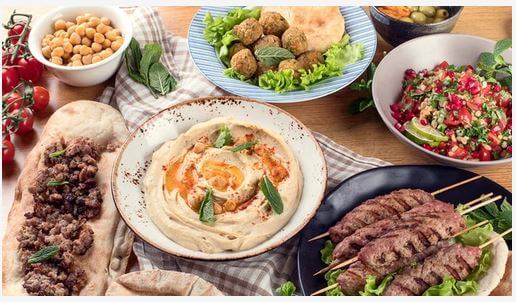Views: 0
Halal food
Halal food refers to food and beverages that are permissible or lawful according to Islamic dietary guidelines. The term “halal” translates to “permissible” or “allowed” in Arabic. Halal food is prepared, processed, and obtained in accordance with Islamic principles, as outlined in the Quran.

For meat to be considered halal, it must come from an animal that has been slaughtered by a Muslim who is of sound mind and has invoked the name of Allah (God) at the time of the slaughter. The animal should be treated with kindness and compassion throughout its life, and the slaughter must be quick and humane, with a swift cut to the throat to ensure blood is drained from the body.
In addition to the method of slaughter, certain other criteria must be met for food to be considered halal. It should not contain any pork or pork by-products, as pork is considered haram (forbidden) in Islam. Alcohol and intoxicants are also prohibited. Furthermore, halal food should be free from any other ingredients or additives that are considered impure or harmful to health.
Halal food is not limited to specific types of cuisine and can include a wide range of dishes from various cultural backgrounds, as long as they meet the criteria outlined by Islamic dietary laws. Many countries have halal certification organizations that ensure the compliance of food products and restaurants with these guidelines.
It’s important to note that halal is not just about the specific food itself but also encompasses the entire process from sourcing to preparation. The concept of halal extends beyond food to other aspects of life, including finance, personal conduct, and ethics
Certainly! Here are some examples of commonly consumed halal foods:
- Chicken: Halal chicken is prepared by following the Islamic guidelines for slaughter, ensuring it is permissible for consumption by Muslims.
- Beef: Halal beef is obtained from cattle that have been slaughtered in accordance with Islamic principles, making it suitable for Muslims.
- Lamb: Lamb meat can also be halal when it meets the requirements of Islamic slaughter and is free from any prohibited ingredients.
- Fish: In general, fish is considered halal, but there are some specific requirements for its preparation, such as ensuring it is not contaminated with non-halal substances.
- Fruits and Vegetables: Most fruits and vegetables are considered halal, as they are plant-based and not subject to specific slaughter requirements.
- Grains and Legumes: Staple foods like rice, wheat, barley, lentils, and beans are typically halal, as long as they are not mixed with any prohibited substances.
- Dairy Products: Milk, cheese, yogurt, and other dairy products can be halal if they are derived from animals that have been slaughtered according to Islamic guidelines.
- Eggs: Eggs are generally considered halal, provided they come from halal sources and are not mixed with any prohibited ingredients.
- Nuts and Seeds: Common snacks like almonds, peanuts, pistachios, and sunflower seeds are halal unless they have been contaminated with non-halal substances.
- Honey: Honey is considered halal unless it has been mixed with any non-halal ingredients.
These examples represent a broad range of halal food options, but it’s important to note that individual dietary practices and cultural variations may influence specific food choices among Muslims.
Source of halal foods?
Halal foods can be sourced from various places, depending on the location and availability. Here are some common sources of halal foods:
- Halal Butchers: Halal butchers specialize in providing meats that have been slaughtered according to Islamic guidelines. They ensure that the meat is sourced from halal-certified suppliers and adhere to the required standards of halal meat preparation.
- Halal Markets and Stores: Many cities have dedicated halal markets or grocery stores that offer a wide range of halal food products. These stores typically carry halal-certified meats, poultry, seafood, dairy products, grains, spices, and other food items that meet Islamic dietary requirements.
- Halal Certification Organizations: In some countries, there are halal certification organizations that inspect and certify food products, restaurants, and manufacturing facilities to ensure their compliance with halal standards. These organizations may provide a list of certified products and establishments, making it easier for consumers to identify halal options.
- Supermarkets and Hypermarkets: Many mainstream supermarkets and hypermarkets now carry halal food sections or specific halal product labels, particularly in areas with a significant Muslim population. These sections or labels help Muslim consumers identify halal food products while shopping.
- Online Retailers: With the increasing popularity of online shopping, there are now online platforms and retailers that specialize in selling halal food products. These platforms offer a convenient way for individuals to access a wide range of halal-certified items and have them delivered to their doorstep.
- Restaurants and Food Establishments: Numerous restaurants, cafes, and food establishments offer halal options, particularly in areas with a diverse culinary scene or significant Muslim population. Some establishments may have halal certification or clearly indicate their halal status, making it easier for Muslim consumers to make informed choices.
When sourcing halal foods, it’s important for consumers to look for halal certification symbols or labels on the packaging, consult trusted halal certification organizations or authorities, or inquire directly with the suppliers or sellers to ensure the food meets the required halal standards.
